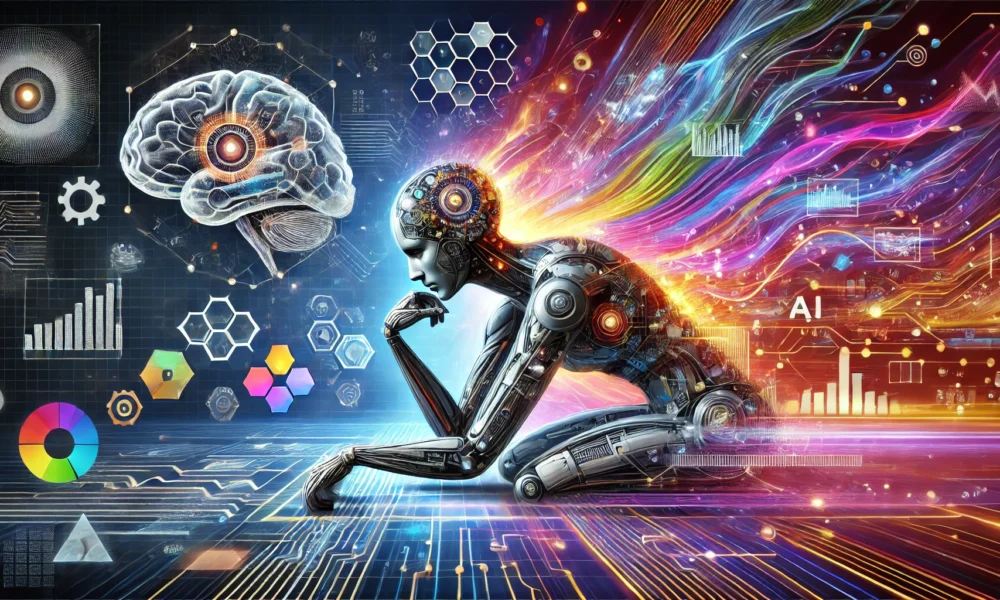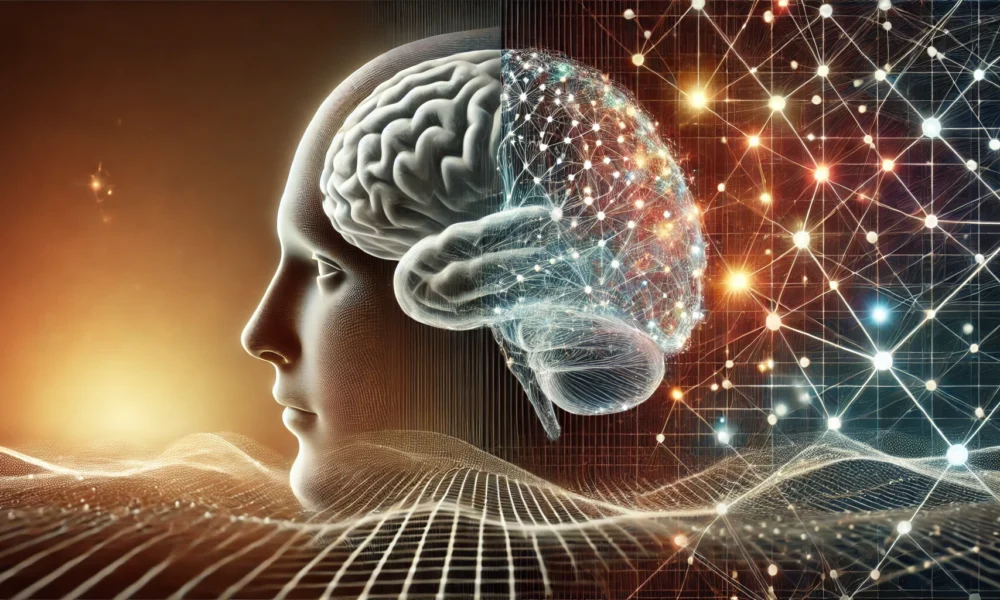Is Artificial Intelligence Ready to Pass Human Cognitive Tests?
Artificial Intelligence (AI) has significantly advanced, from powering self-driving cars to assisting in medical diagnoses. However, one important question remains: Could AI ever pass a cognitive test designed for humans? While AI has achieved impressive results in areas such as language processing and problem-solving, it still struggles to replicate the complexity of human thought.
AI models like ChatGPT can generate text and solve problems efficiently, but they do not perform as well when faced with cognitive tests such as the Montreal Cognitive Assessment (MoCA), designed to measure human intelligence.
This gap between AI’s technical accomplishments and cognitive limitations highlights significant challenges regarding its potential. AI has yet to match human thinking, especially in tasks that require abstract reasoning, emotional understanding, and contextual awareness.
Understanding Cognitive Tests and Their Role in AI Evaluation
Cognitive tests, such as the MoCA, are essential for measuring various aspects of human intelligence, including memory, reasoning, problem-solving, and spatial awareness. These tests are commonly used in clinical settings to diagnose conditions like Alzheimer’s and dementia, offering insight into how the brain functions under different scenarios. Tasks like recalling words, drawing a clock, and recognizing patterns assess the brain’s ability to navigate complex environments, skills that are essential in daily life.
When applied to AI), however, the results are quite different. AI models such as ChatGPT or Google’s Gemini may excel at tasks like recognizing patterns and generating text, but they struggle with aspects of cognition that require more profound understanding. For example, while AI can follow explicit instructions to complete a task, it lacks the ability to reason abstractly, interpret emotions, or apply context, which are core elements of human thinking.
Cognitive tests, therefore, serve a dual purpose when evaluating AI. On one hand, they highlight AI’s strengths in processing data and solving structured problems efficiently. On the other hand, they expose significant gaps in AI’s ability to replicate the full range of human cognitive functions, particularly those involving complex decision-making, emotional intelligence, and contextual awareness.
With the widespread use of AI, its applications in areas such as healthcare and autonomous systems demand more than just task completion. Cognitive tests provide a benchmark for assessing whether AI can handle tasks requiring abstract reasoning and emotional understanding, qualities central to human intelligence. In healthcare, for example, while AI can analyze medical data and predict diseases, it cannot provide emotional support or make nuanced decisions that depend on understanding a patient’s unique situation. Similarly, in autonomous systems like self-driving cars, interpreting unpredictable scenarios often requires human-like intuition, which current AI models lack.
AI Limitations in Cognitive Testing
AI models have made impressive progress in data processing and pattern recognition. However, these models face significant limitations when it comes to tasks requiring abstract reasoning, spatial awareness, and emotional understanding. A recent study that tested several AI systems using the Montreal Cognitive Assessment (MoCA), a tool designed to measure human cognitive abilities, revealed a clear gap between AI’s strengths in structured tasks and its struggles with more complex cognitive functions.
In this study, ChatGPT 4o scored 26 out of 30, indicating mild cognitive impairment, while Google’s Gemini scored just 16 out of 30, reflecting severe cognitive impairment. One of AI’s most significant challenges was with visuospatial tasks, such as drawing a clock or replicating geometric shapes. These tasks, which require understanding spatial relationships and organizing visual information, are areas where humans excel intuitively. Despite receiving explicit instructions, AI models struggled to complete these tasks accurately.
Human cognition integrates sensory input, memories, and emotions, allowing adaptive decision-making. People rely on intuition, creativity, and context when solving problems, especially in ambiguous situations. This ability to think abstractly and use emotional intelligence in decision-making is a key feature of human cognition and thus enables individuals to navigate complex and dynamic scenarios.
In contrast, AI works by processing data through algorithms and statistical patterns. While it can generate responses based on learned patterns, it does not truly understand the context or meaning behind the data. This lack of comprehension makes it difficult for AI to perform tasks that require abstract thinking or emotional understanding, which is essential in tasks like cognitive testing.
Interestingly, the cognitive limitations observed in AI models bear similarities to the impairments seen in neurodegenerative diseases like Alzheimer’s. In the study, when AI was asked about spatial awareness, its responses were overly simplistic and context-dependent, resembling those of individuals with cognitive decline. These findings emphasize that while AI excels at processing structured data and making predictions, it lacks the depth of understanding required for more nuanced decision-making. This limitation especially concerns healthcare and autonomous systems, where judgment and reasoning are critical.
Despite these limitations, there is potential for improvement. Newer versions of AI models, such as ChatGPT 4o, have shown progress in reasoning and decision-making tasks. However, replicating human-like cognition will require improvements in AI design, potentially through quantum computing or more advanced neural networks.
AI’s Struggles with Complex Cognitive Functions
Despite advances in AI technology, it remains a long way from passing cognitive tests designed for humans. While AI excels at solving structured problems, it falls short regarding more nuanced cognitive functions.
For example, AI models often miss the mark when asked to draw geometric shapes or interpret spatial data. Humans naturally understand and organize visual information, which AI struggles to do effectively. This highlights a fundamental issue: AI’s ability to process data does not equate to understanding the way human minds work.
At the core of AI’s limitations is its algorithm-based nature. AI models operate by identifying patterns within data, but they lack the contextual awareness and emotional intelligence that humans use to make decisions. While AI may efficiently generate outputs based on what it has been trained on, it does not understand the meaning behind those outputs the way a human does. This inability to engage in abstract thinking, coupled with a lack of empathy, prevents AI from completing tasks that require deeper cognitive functions.
This gap between AI and human cognition is evident in healthcare. AI can assist with tasks like analyzing medical scans or predicting diseases. Still, it cannot replace human judgment in complex decision-making that involves understanding a patient’s circumstances. Similarly, in systems like autonomous vehicles, AI can process vast amounts of data to detect obstacles. Still, it cannot replicate the intuition humans rely on when making split-second decisions in unexpected situations.
Despite these challenges, AI has shown potential for improvement. Newer AI models are beginning to handle more advanced tasks involving reasoning and basic decision-making. However, even as these models advance, they remain far from matching the broad range of human cognitive abilities required to pass cognitive tests designed for humans.
The Bottom Line
In conclusion, AI has made impressive progress in many areas, but it still has a long way to go before passing cognitive tests designed for humans. While it can handle tasks like data processing and problem-solving, AI struggles with tasks that require abstract thinking, empathy, and contextual understanding.
Despite improvements, AI still struggles with tasks like spatial awareness and decision-making. Though AI shows promise for the future, especially with technological advances, it is far from replicating human cognition.
-
Can AI pass human cognitive tests?
Yes, AI has made significant progress in passing human cognitive tests, with some algorithms outperforming humans in specific tasks like image recognition and language processing. -
How does AI compare to humans in cognitive tests?
While AI excels in processing large amounts of data and performing repetitive tasks with high accuracy, it still struggles in areas that require common sense reasoning, emotional intelligence, and creativity – all of which humans excel in. -
Will AI eventually surpass human capabilities in cognitive tests?
It is difficult to predict if and when AI will surpass human capabilities in all cognitive tests. AI continues to improve rapidly, but there are still significant challenges in replicating the full range of human cognitive abilities in machines. -
Can AI learn and adapt based on the results of cognitive tests?
Yes, AI can learn and adapt based on the results of cognitive tests through a process known as reinforcement learning. This allows AI algorithms to adjust their strategies and improve their performance over time. - How can researchers use AI to push the limits of cognitive tests?
Researchers can use AI to create new, more challenging cognitive tests that may be beyond the capabilities of humans alone. By leveraging AI’s computational power and ability to process massive amounts of data, researchers can explore the limits of artificial intelligence in cognitive testing.


